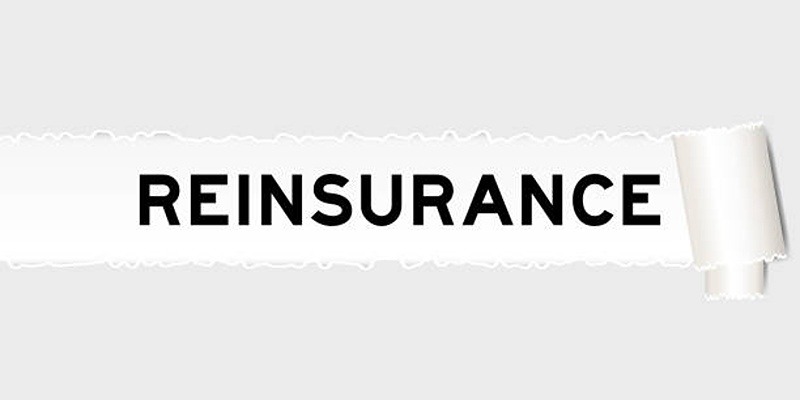Finding a health insurance package that meets your requirements and your family's needs while remaining within your budget may be difficult. Even though medical coverage is no longer mandated as of 2019, several states still demand it. If you're one of the 34 million Americans without health coverage, or if you're looking for cheaper health insurance, our purchasing health insurance advice may be of assistance.
What Is Health Insurance?
Medical expenditures due to disease, injury, or other conditions must be covered by an insurance provider under a contract between the insurer and the insured person. Hospital treatment, emergency care, surgeries, laboratory testing, prescription medicine, maternity and neonatal care, psychological health, ambulance trips, and rehab facilities are all examples of expenditures that may be included in these costs. Some dental expenditures may be covered by health insurance, but it is typical to have a separate dental insurance policy.
Cosmetic operations such as facial surgery, hair removal using lasers, and body contouring are often not covered by health insurance, nor are IVF procedures, off-label medication usage, or innovative and experimental technologies normally covered by health insurance. Plans, providers, and states all have different requirements for what health insurance should cover.
What Sorts of Coverage Are There?
There are three main types of health insurance plans: health insurance that is paid for by an employer (ESI), personal or private policies, and Medicare/Medicaid. In the recent decade, the proportion of private firms providing employer-sponsored coverage dropped from 61.7% in 2008 to 47.4% in 2018. Non-insured Americans saw their access to commercial health insurance & Medicaid eligibility increase dramatically when Barack Obama passed the ACA law in 2010.
Employer-sponsored insurance
When you have health insurance provided by your work, you have employer-sponsored health insurance. If you have children, you may be able to incorporate them into these arrangements as well. Your company decides which plans are accessible to you and distributes the price of premiums with you so that you may save money. Pre-tax premium payments cut your taxable income even more.
Health Insurance for Individuals
An individual healthcare plan, often called a personal medical insurance policy, is a coverage you purchase for yourself or your dependents. These plans enable you to choose the healthcare policy that best meets your requirements and might include your chosen physicians and hospitals. You don't have to worry about losing your insurance if you move jobs since it isn't supplied by your employer. Health insurance policies and choices are renewable or changeable on a yearly basis.
Medicare and Medicaid

Medicare is a government program that offers health insurance to persons over the age of 65, as well as those under the age of 65 who have an impairment, end-stage renal illness, or neurodegenerative disorders. Low-income citizens, pregnant women, kids, disabled individuals, and elderly folks are all eligible for Medicaid coverage.
5 Ways to Insure Your Health
Learning about your choices and available resources will assist you in making the best decision for you & your children if you want to acquire individual health coverage.
1. The Healthcare Insurance Marketplace Run by the Government
An online market for healthcare insurance policies for individuals & families was created in 2010 as part of the Affordable Care Act. It is possible to learn further regarding health insurance & evaluate plans, register in a program, and more via this website. Health insurance incentives may be available to you if you select and purchase a plan via the marketplace, based on your budget. Even if your company provides insurance, you may still buy a policy via the marketplace. Nevertheless, you may not be eligible for incentives if you have exposure to employer-sponsored health coverage.
You are required to submit an application either during the general enrollment period or during the special registration period in order to purchase insurance via the marketplace. The open enrollment times for various state exchanges may range somewhat. Because of life events like relocating, becoming a parent, or losing your current health insurance, you may be eligible for a special registration window if you skip open enrollment.
2. A Broker or Representative of a Health Insurance Company
Brokers and agents that specialize in health insurance can guide you through the maze of plans available to you and register you in the program that is most appropriate for your needs. In the health insurance industry, an agent often represents a single business, whereas a broker typically represents many. Working with an agency or broker doesn't cost you a penny since they're paid commissions for offering you a plan.
It's possible to set up meetings with a broker or agent via the federal government's Find Local Help site. It's also possible to submit your contact number or e-mail address and be called by a sales representative or broker to discuss your insurance options. The sale of health insurance through agents and brokers is regulated by state law, and it is common for them to be obligated to operate in the customers' best interest.
3. Straight from the Insurer
Directly negotiating with health insurance firms may help some consumers locate policies that are more tailored to their individual requirements or more affordable. Only in a few circumstances do outside-the-marketplace plans exist, but they must still fulfill all of the ACA's basic minimum plan standards. You won't be eligible for tax credits for premiums or other incentives if you purchase a program outside the marketplace.
4. Buying and Selling of Insurance Online
"Direct Enrollment Websites" or "Private Exchanges" were established by the Trump regime in 2019 to sell marketplace plans. A variety of insurers, brokers, and other service providers maintain these websites. Examples include Blue Cross Shield and Ambetter, to name just a few.
There are a few drawbacks to using private enrollment sites. Private insurer-run exchanges often only display their own market plans, not those of any of their rivals. Secondly, private online brokers may promote programs that pay them the most money at the outset. Last but not least, private sites are permitted to offer plans that do not fulfill the ACA's basic minimum insurance criteria, and "secret shoppers" who evaluated these sites have raised worry about false representations of health insurance policies.
5. Membership Organizations

Those who are self-employed, are jobless, or own small start-up businesses may be qualified for group health plans. Additionally, people who do not have health insurance offered by their employer may also be entitled. A specialist, trade, or membership group is required to participate in these health programs. There are a number of organizations that provide group health insurance, such as AARP or the freelancers union.
A "health services saving" plan from a membership group could also spare you the cost of medicines, but it is not a real health insurance policy. If you're buying outside of the market, be wary of healthcare-sharing departments, where members of a religious community pool their resources to pay for medical expenditures, which are then disbursed by the ministry. This isn't health coverage, and it doesn't address pre-existing diseases or guarantee payments for medical expenses.




